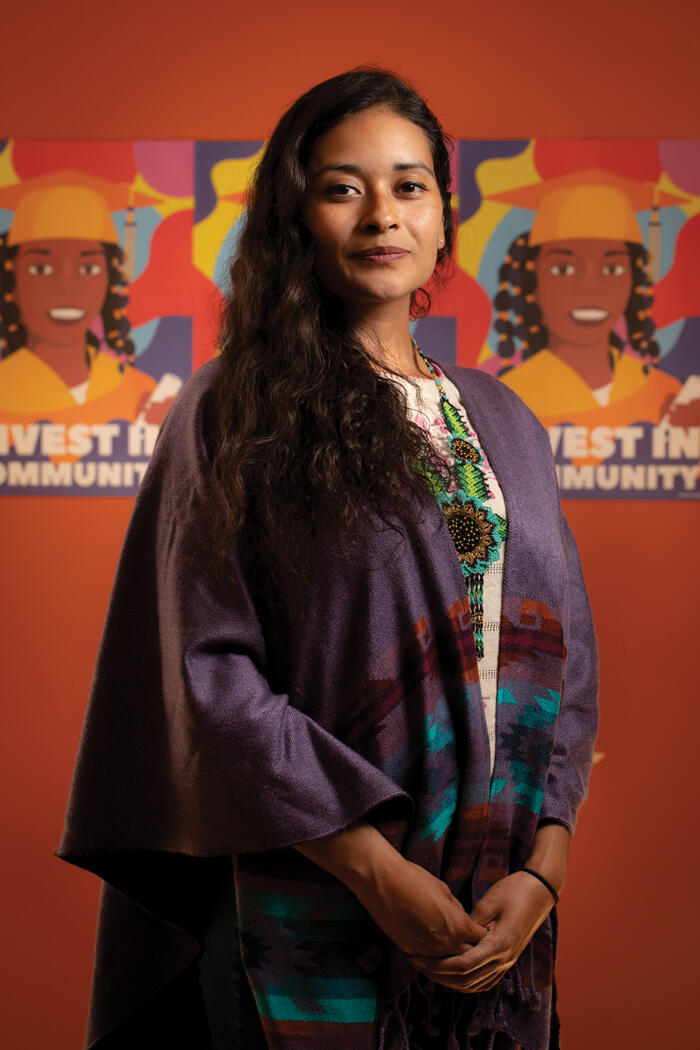As a STEM integration transformation coach, Maribel Valdez Gonzalez spends her time supporting educators as they work to create project-based learning cultures. The goal of this collaboration, she explains, is “to achieve educational justice for all students, especially Black and brown students.”
Teaching Tolerance sat down with Gonzalez to learn more about project-based learning, anti-racist teaching and transforming educational approaches to students and communities.
Can you tell us a little about the work you do now? What does being a STEM integration transformation coach look like?
I work directly with administrators and teachers ... to collaboratively create a culture of learning that facilitates the critical consciousness of our community. I lead professional development around interdisciplinary, project-based learning with a grounding focus of developing healthy, anti-racist teaching identities.
Learn more about Technology Access Foundation at techaccess.org.
And in this work, how do you build on your experience as a former classroom teacher?
I taught at Armando Leal Middle School in San Antonio, Texas. I became a teacher because I wanted to become the person I needed when I was in school: an educator who is transparent about the impact of systems of power on communities of color. I addressed bullying in schools for what it is: racism, classism, homophobia, shadeism [or colorism], etc., and wove it into the curriculum. ... I learned how to facilitate discussion on issues that impact students in a way that allowed students to draw their own conclusions.
As a teacher, hidden traumas from my own K-12 experience would surface. I began to interrogate standardized expectations to ensure I was approaching my craft with a decolonized lens. Today, as I work with teachers, I ask them to become aware of how they have been conditioned as former students and how that informs how they teach.
Creating awareness around what they have learned to tolerate and relearning how we relate to children and child-like characteristics is a way to heal—and support learners from various cultural backgrounds.
How do you see project-based learning interrupting that conditioning of “what [educators] have learned to tolerate”?
Project-based learning [is] grounded in reflection. ... Youth can explore solutions to problems that are relevant to their lives through a design process that allows space for reflection about what works, what doesn’t work and why.
For me, in my vision of liberatory education, students understand why we’re doing something. Many times teachers fall into the trap of, I don’t want to give these instructions over and over again, so pay attention! They ask their students, “What are the instructions for this?” rather than, “Why are we doing this? How is this connected to my community? How is this connected to my life right now?”
It’s that transparency of purpose [that’s key]. It’s not effective if we’re not transparent about systems of oppression. That has to be part of the conversation that teachers have with students.
Is there anything you’ve learned in this work that you wish more educators understood?
We all love the students and communities we serve. Love is what drives our work. To ensure we are serving every single student, we must ground instruction through the process of learning by providing explicit opportunities for youth to reflect on their learning. This is not how most of us learned in our own experiences. This requires a significant shift in mindsets about what teaching can be like.
Do you have any suggestions for fellow educators that they can bring to a back-to-school season unlike any we’ve experienced before?
This is the time to really think deeply about, “How can I radically shift from that testing culture?” and [ask ourselves], “How do I internalize that testing culture?” ... What we need to do is have a radical shift of thinking —“I am going to accept my students as they are and help them get to the next level.” In this era of continuous distance learning, we must use this opportunity to shift our understanding of what success looks and feels like.
Create authentic learning experiences for your students! ... This is an equitable way for students to meet standards and promote inquiry. These experiences create meaningful relevancy and nurture various strengths and skills.
I love witnessing the power of a pedagogical shift away from traditional educational models to one that is radically inclusive to every kind of learner. [When that happens], students are excited about the work they are doing because they can show up as their most authentic selves, and the work is grounded in their lives. While this transformation is a journey, the shift is immediately visible when teachers are focused on the process, not the end result.
Maribel Valdez Gonzalez is a STEM integration transformation coach with Technology Access Foundation in Seattle, Washington.
Know an excellent administrator, librarian or counselor we should interview? Tell us all about them.


0 COMMENTS